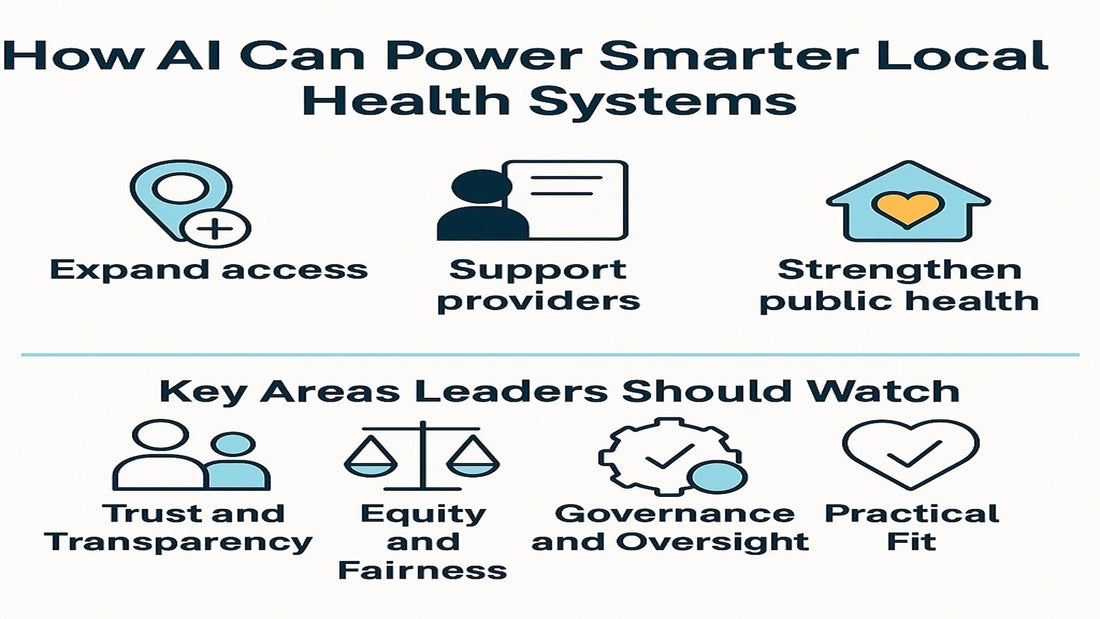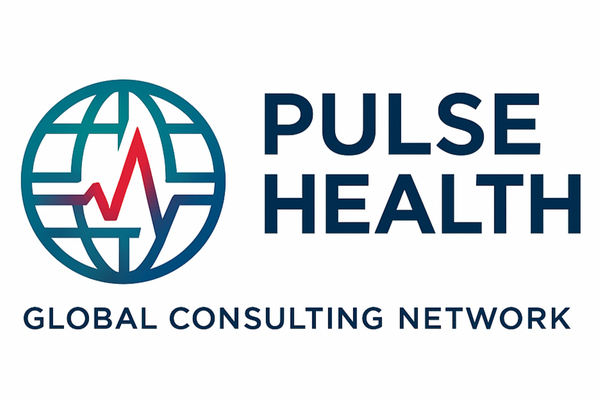
Closing the Gap: How AI Can Power Smarter Local Health Systems (Without Leaving Anyone Behind)
Share
By Dr. Darnell L. Braynen-Blake, DrPH, MBA-HCA
Founder & Principal, Pulse Health Global Consulting Network
Artificial Intelligence (AI) is often described as the future of healthcare. Yet most progress so far has been concentrated in large academic hospitals or research centers. Local governments and smaller practices—the very places where many people seek care—are often left behind.
This gap matters. Communities that are already underserved risk falling further if AI tools are not designed and implemented with them in mind.
Why AI Matters for Local Health
AI has the potential to:
- Expand access by guiding patients to the right services faster.
- Support providers with documentation, referrals, and alerts.
- Strengthen public health through earlier detection of disease trends.
But these benefits only come when AI is used responsibly—with transparency, fairness, and human oversight.
Key Areas Leaders Should Watch
-
Trust and Transparency
Communities are more likely to embrace AI when they understand how it works and how decisions are made. Clear communication is essential. -
Equity and Fairness
Without attention to bias, AI can unintentionally widen gaps. Leaders should ensure outcomes are tracked across different populations. -
Governance and Oversight
AI is not “set and forget.” It requires ongoing monitoring, accountability, and clear policies to guide safe use. -
Practical Fit
Tools must fit into daily workflows, supporting rather than burdening providers. The best AI augments, not replaces, human care.
Moving Forward
For local governments and private practices, the opportunity is real but so are the challenges. AI can reduce wait times, improve efficiency, and bring public health closer to the community. At the same time, it demands leadership attention to trust, fairness, and responsible oversight.
Leaders who start with these priorities will be best positioned to harness AI for stronger, more equitable health outcomes.
References
- Bajwa, J. et al. (2021). Artificial intelligence in healthcare: transforming the practice of medicine. NPJ Digital Medicine.
- Cross, D. et al. (2024). Bias in clinical AI systems: taxonomy and mitigation. PLOS Digital Health.
- Heinisuo, J. et al. (2025). AI dilemmas in local government. Information Systems Frontiers.
- David, J. et al. (2025). Public perceptions of AI in local government. Government Information Quarterly.
